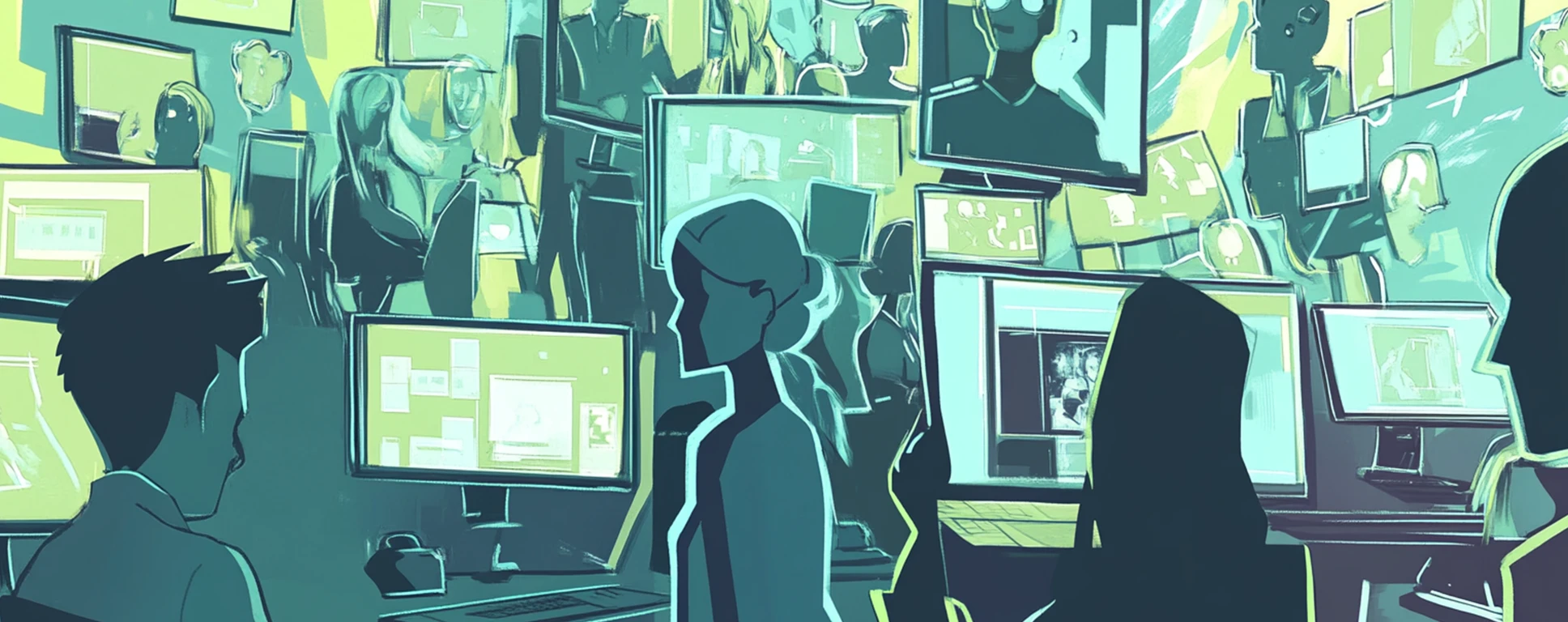
Studying Online Cultures: An Introduction to Digital Ethnographic Methods
Course Code
SOSC 20224 91
Cross Listed Course Code(s)
ANTH 21432, ANTH 31432, ENST 20224, GLST 26220, SOCI 20515, SOSC 30224
Course Description
"Virtual worlds are places of imagination that encompass practices of play, performance, creativity and ritual.” – Tom Boellstorff, Ethnography and Virtual Worlds. This course is designed to provide students in the social sciences with a review of ethnographic research methods in an online environment, exposure to major debates on virtual ethnographic research, and opportunities to try their hand at practicing fieldwork virtually.
We will analyze and problematize enduring oppositions associated with ethnographic fieldwork – field/home, insider/outsider, researcher/research subject, expert/novice, ‘being there’/removal—and we will debate epistemological, ethical, and practical matters in online ethnographic research. Expect a lot of hands-on activities: you will formulate a preliminary research question at the beginning of the course, and conduct a few weeks of ethnographic research in a virtual field site of your choosing. Each week you will be asked to complete short ethnographic assignments, and to produce field notes to be exchanged and discussed in class.
Course Criteria
Students who have taken Digital Ethnography with Prof. Fugazzola should not enroll in this course due to content overlap.
This course is open to all undergraduates and is included in the Summer Institute in Social Research Methods. This course is an approved elective for students in the Latin American and Caribbean Studies major and in the Health and Society minor. It also satisfies the methodology course requirement for the Sociology major and the Anthropology major. It counts as a methodology elective for the Global Studies major. It is an approved elective course for the ENST major and minor requirements, but students must petition with relevance to course of study. It may be approved as an elective for additional majors by petition.
Instructor(s)
Cate Fugazzola
UChicago Registration 1Other Courses to Consider
These courses might also be of interest.
 Sarah Baartman through Schitt's Creek: An Introduction to Gender and Popular Culture
Sarah Baartman through Schitt's Creek: An Introduction to Gender and Popular CultureThroughout the twentieth century, numerous theorists have argued that genders are learned, enacted, and ascribed identities, worked out through interaction. As such, the production of gender as category is carried out in relation to cultural models and artifacts people use to make sense of, model and reject gendered identities, characteristics, and roles. This undergraduate course takes popular culture, including film, television, literature, and social media, as a starting point for understanding the often taken-for granted characteristics deemed gendered in Western culture and elsewhere. Attending to race, class, sexuality, age, and other social categorizations throughout, we will marry gender and queer theory with works on representation and postfeminism, attending particularly to how ethnographic works have apprehended the role of media in producing, propagating, contesting, and distilling cultural notions of gender. While we will heavily examine widely-disseminated, economically-powerful imagery, we will also attend closely to alternative, resistant, and activist media, and to creative consumption or reparative reading. This class will meet online for nine synchronous sessions.
Remote Language, Culture, and Education
Language, Culture, and EducationIn this course, we examine past and current theories and research about differential educational achievement in US schools, including: - Theories that focus on the characteristics of people (e.g., their psychological characteristics, their internal traits, their essential qualities); - Theories that focus on the characteristics of groups and settings, (e. g., ethnic group culture, language, school culture); and - Theories that examine how cultural processes mediate political-economic constraints and human action. Course discussion will focus on understanding the ways in which language and/or culture are conceptualized in these theories and their educational consequences, especially for racialized students from historically marginalized communities in the US.
Remote On Time and Space
On Time and SpaceThis studio course focuses on the fundamentals of pre-production, production, and post-production techniques using digital video.
The course is primarily concerned with how patterns of techniques and formal logics interact and shape our experience of space and time. We will engage in creative and technical studies, individual projects, readings and screenings that focus on the organization and technical realization of content as well as its interpretation. Videography, lighting, sound design, and editing using Adobe Premiere are taught through concepts and methodologies drawn from fine art, documentary, and narrative film and video making considered across different viewing platforms.
The goal is for students to understand how the experience of space and time can be shaped in the film medium. Students will leave the course with a grasp of the conventional and self-invented techniques filmmakers use.
Remote